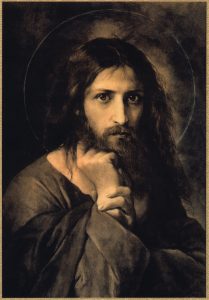When God brought His Firstborn into the world, he said: Let all angels of God worship him. (Heb. 1:6)

-
Recent
Resources
- Dear Friend
- Prayers
- Guidelines for Those Who Cannot Fast Strictly
- Daily Orthodox Scriptures
- International Orthodox Version
- Orthodox Engagement – The Old Rite in Erie, Pennsylvania
- Church of the Nativity
- Русская Православная Старообрядческая Церковь
- Русское старообрядчество
- Русская Православная Старообрядческая Церковь
- Церковная лавка РПсЦ
- Messiah.fm
Verse of the Moment
Psalm 110:1 (LXX): I will confess Thee, O Lord, with my whole heart, in the council of the upright and in the congregation.
Category Archives: Blog
The Eternal Beauty of the Latin Mass
The Tridentine Mass, or the traditional Latin Mass as we sometimes call it, is far more than a historical remnant or an artefact of ecclesiastical nostalgia. It is the enduring expression of the Church’s sacred worship, refined through centuries of … Continue reading
Posted in Blog
Comments Off on The Eternal Beauty of the Latin Mass
A Reflection on the Tridentine Mass and the Ancient Eastern Liturgies
I write as a priest who reveres the Apostolic Faith and who believes that worship is the surest testimony of what the Church teaches and loves. I have offered the holy mysteries within sanctuaries where the air is heavy with … Continue reading
Posted in Blog
Comments Off on A Reflection on the Tridentine Mass and the Ancient Eastern Liturgies
Some Thoughts on the Use of Social Media and Artificial Intelligence
These days, social media is part of nearly everything we do. It helps us stay in touch, share news, and sometimes even spread a bit of encouragement. Used wisely, it can be a blessing. But it also carries real dangers. … Continue reading
Posted in Blog
Comments Off on Some Thoughts on the Use of Social Media and Artificial Intelligence
A Pastoral Word on the Recent Violence Within the United States
We awaken to yet more tidings of sorrow. Within the space of but a single day, five mass shootings have torn through the heart of the United States. The land groans beneath the weight of grief. Families are left in … Continue reading
Posted in Blog
Comments Off on A Pastoral Word on the Recent Violence Within the United States
The Hiddenness of Prayer and Humility of the Heart
“Do not trumpet your achievements, and be not hopeless when you sin.” (St. Ephraim the Syrian) In these few words, he points out two dangers that ensnare the Christian soul, 1) pride in outward show and 2) despair in inward … Continue reading
Posted in Blog
Leave a comment
Addressing Priests as “Father”
Question: Why is it that Protestant have such a problem with priests being called “Father”? Response: It is often objected by certain Protestants that the words of Christ in Matthew 23:9 forbid the use of the title “Father” for clergy. … Continue reading
Posted in Blog
Leave a comment
The Necessity of Condemning Sin
“He had no mercy on a nation destined for destruction, who were taken away because of their sins.” — Sirach 16:9 The words of the Holy Scriptures are not written to flatter us, nor to soothe the guilty conscience with … Continue reading
Posted in Blog
Leave a comment
Why Petition the Saints?
Question: I don’t deny that the saints exist in heaven, but why do you petition them? Isn’t Jesus enough? Without going into a full theological article, I will simply say that we confess that our Lord Jesus Christ alone is … Continue reading
Augustine on Perseverance and Grace
“I assert, therefore, that the perseverance by which we persevere in Christ even to the end is the gift of God; … Therefore it is uncertain whether any one has received this gift so long as he is still alive.” … Continue reading
Posted in Blog
Leave a comment
Yet Another Nasty Email From Johnson City
I have been receiving these types of email for a few years now. I usually do not respond to most of them because of the filth they contain. For nearly a month, this individual has pelted me almost daily with … Continue reading
Posted in Blog
Leave a comment